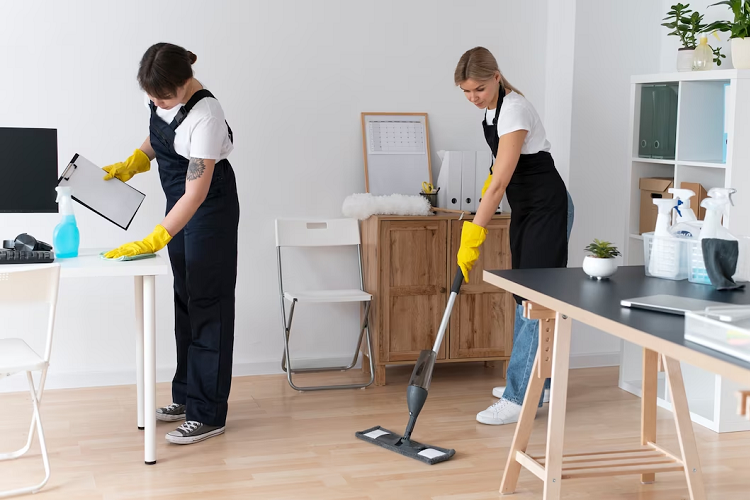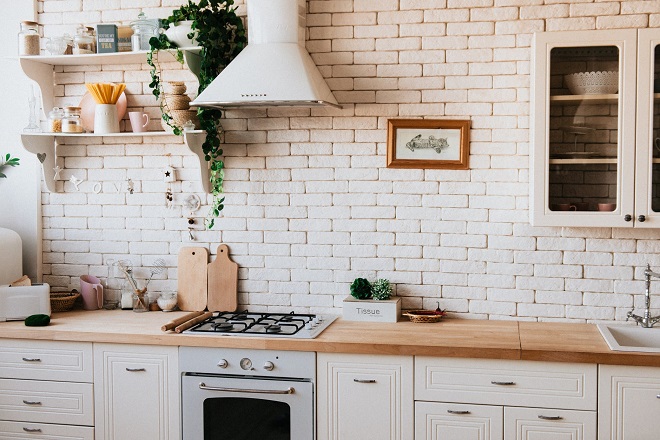House cleaning is important to keep a healthy and comfortable living environment. However, despite our best intentions, cleaning can be hazardous, as cleaning agents and equipment can pose risks to you or somebody nearby.
This is where safety regulations come in – by ensuring that certain standards are met in the cleaning industry, safety regulations can help to prevent accidents and injuries.
Importance of House Cleaning
House cleaning is crucial for maintaining a healthy and hygienic living environment. Regular cleaning with UrbanMop helps remove dirt, dust, and other allergens that can cause respiratory problems and trigger allergies. A clean house also reduces the risk of infections and illnesses by eliminating harmful bacteria and viruses.
Cleaning a house helps you remove clutter and increase the space. A clutter-free and organized living area enables relaxation and reduces stress levels. Similarly, a clean kitchen promotes healthy eating habits and prevents the growth of bacteria and pests.
Regular cleaning also helps preserve the condition of household items such as carpets, furniture, and appliances. Dust and dirt can accumulate and cause wear and tear on these items, leading to premature damage or expensive repairs.
Also, keeping a clean home is essential for maintaining good mental health. A tidy and clean space can reduce anxiety, depression, and stress and improve overall well-being. House cleaning is an essential aspect of healthy living. It should be prioritized to ensure a safe, comfortable, and inviting living space.
Risks of House Cleaning
House cleaning can be hazardous due to using cleaning agents and equipment that can pose risks to workers and customers. These risks include exposure to toxic chemicals, slip-and-fall accidents, burns, cuts, and respiratory problems.
Cleaning agents can contain harsh chemicals that can cause skin and eye irritation and other health problems, especially if not used in a well-ventilated area or mixed with other products. Additionally, cleaning equipment such as vacuum cleaners and mops can pose a tripping hazard if not stored properly. Improper use of electrical equipment can also result in electrical shocks or fires.
Similarly, cleaning at heights, such as when washing windows, can increase the risk of falls and injuries. The risks of house cleaning are consequential, and it is important to take appropriate safety precautions to ensure that your cleaning experience is safe.
The Need for Safety Regulations in House Cleaning
Safety regulations in house cleaning are necessary to protect individuals from hazards that may arise during cleaning activities. These are why you need these three essentials for a safe house cleaning.
Protective Equipment
Regarding cleaning, it’s essential to use protective equipment to prevent injuries and accidents. Protective equipment includes gloves, masks, goggles, and aprons. These items act as a barrier between you and the cleaning products you use, protecting your skin, eyes, and lungs.
They are especially important when working with harsh chemicals, as they can cause serious health issues if they come into contact with your skin or eyes. They also reduce your risk of coming in contact with cleaning products that emit harmful fumes that can cause respiratory problems if inhaled.
Cleaning Products
Cleaning products are essential to house cleaning, but not all products are created equal. Some cleaning products contain harsh chemicals that can harm your health and the environment. When selecting cleaning products, it’s important to choose safe and effective ones.
Safe cleaning products are those that are made from natural, non-toxic ingredients. These products are safe for children and pets and won’t harm the environment. Examples of safe cleaning products include vinegar, baking soda, and castile soap.
Proper Disposal of Waste
Proper waste disposal is an essential part of house cleaning. It is important to avoid contamination and prevent environmental harm. Waste can include cleaning products, empty containers, and other materials used during the cleaning process.
There are different types of waste, and each requires specific disposal methods. For example, some cleaning products may be disposed of as hazardous waste, while others can be in the trash. It’s important to read the labels on your cleaning products to determine the appropriate disposal method.
Importance of Safety Regulations in House Cleaning
Having these essentials are good and with safety regulations in house cleaning, they help you to achieve the following.
Prevent Accidents
Cleaning often requires hazardous chemicals, equipment, and tools that can lead to accidents if not properly used. Safety regulations help to prevent accidents by recommending the proper handling, storage, and use of cleaning chemicals, equipment, and tools.
Reducing Health Risks
Cleaning tasks can expose individuals to various health risks, including respiratory problems, skin irritation, and infections. Safety regulations in house cleaning guide cleaners in using eco-friendly cleaning products, reducing exposure to toxic substances, and minimizing the risk of health issues.
Ensuring Compliance with Standards
Safety regulations in house cleaning can provide guidelines on the appropriate cleaning procedures, which ensure the safety and well-being of the clients, employees, and the general public.
Conclusion
Safety and well-being are of utmost importance in the house cleaning industry. You must follow all safety precautions to ensure that the cleaning process is safe and free from potential hazards.
By following essential safety measures, such as using protective equipment and training workers on properly handling cleaning products and equipment, cleaning companies can help minimize the risks associated with cleaning.




